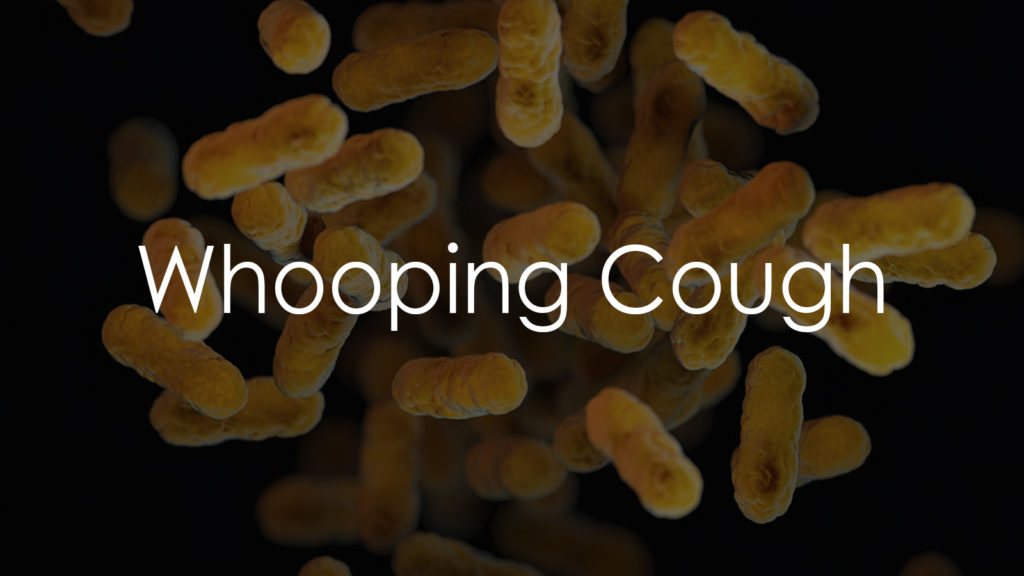Whooping cough, also known as pertussis, is a highly contagious respiratory disease caused by the bacterium Bordetella pertussis. While vaccination has significantly reduced its prevalence, whooping cough can still pose serious health risks, particularly in infants, young children, and those with weakened immune systems. One of the most critical aspects of whooping cough is the range of complications that can arise, making it crucial to understand and address these potential issues.

Common Complications of Whooping Cough
Whooping cough can lead to a variety of complications, some of which are more common and less severe, while others can be life-threatening. Understanding these complications is essential for early detection and management.
1. Secondary Bacterial Infections
One of the most common complications of whooping cough is secondary bacterial infections. The violent coughing fits associated with pertussis can weaken the immune system, making the body more susceptible to other infections, such as:
- Pneumonia: Pneumonia is a serious lung infection that occurs when bacteria enter the lungs. It is a leading cause of death in infants with whooping cough.
- Otitis Media: This middle ear infection can result from the spread of bacteria from the respiratory tract. It is particularly common in children.
2. Apnea
Apnea, a condition characterized by temporary cessation of breathing, is a frequent complication in infants with whooping cough. During severe coughing episodes, infants may experience:
- Shortness of breath: Infants may struggle to breathe during and after coughing fits, leading to a lack of oxygen and potential long-term brain damage.
- Cyanosis: This condition, where the skin turns blue due to insufficient oxygen, can occur during prolonged episodes of apnea.
Severe Complications of Whooping Cough
While some complications are relatively mild and manageable, others can be severe, requiring immediate medical intervention.
1. Seizures
Seizures are a severe complication of whooping cough, particularly in infants. They occur due to the lack of oxygen during prolonged coughing spells, which can affect brain function. Seizures may manifest as:
- Convulsions: Sudden, involuntary muscle contractions that can last several minutes.
- Loss of consciousness: Infants may lose consciousness during or after a seizure, necessitating urgent medical care.
2. Encephalopathy
Encephalopathy, a term that refers to any brain disease that alters brain function or structure, can result from whooping cough. This complication is rare but extremely serious, leading to long-term cognitive and neurological issues. Encephalopathy may present as:
- Developmental delays: Infants who survive encephalopathy may experience delayed milestones in speech, movement, and cognitive functions.
- Permanent brain damage: In severe cases, encephalopathy can result in irreversible brain damage, affecting quality of life.
3. Rib Fractures and Abdominal Hernias
The forceful coughing associated with whooping cough can cause physical injuries, such as rib fractures and abdominal hernias. These complications occur due to:
- Violent coughing: Repeated, intense coughing can exert excessive pressure on the chest and abdomen, leading to fractures or hernias.
- Pain and discomfort: These injuries can cause significant pain and may require surgical intervention in severe cases.
Life-Threatening Complications of Whooping Cough
In some instances, whooping cough can lead to life-threatening complications, particularly in vulnerable populations such as infants, the elderly, and those with compromised immune systems.
1. Respiratory Failure
Respiratory failure is one of the most serious complications of whooping cough. It occurs when the lungs are unable to provide sufficient oxygen to the body or remove carbon dioxide effectively. This can happen due to:
- Severe pneumonia: When secondary infections, such as pneumonia, become overwhelming, they can cause the lungs to fail.
- Prolonged apnea: Repeated episodes of apnea can deprive the body of oxygen, leading to respiratory failure.
2. Death
Tragically, whooping cough can be fatal, particularly in infants who are too young to be fully vaccinated. Death from whooping cough often results from:
- Severe respiratory complications: Inability to breathe effectively can lead to organ failure and death.
- Encephalopathy and seizures: Severe brain damage from lack of oxygen can also result in death.
Long-Term Effects of Whooping Cough Complications
Even after recovery from whooping cough, some individuals may experience long-term effects due to the complications they suffered during the illness.
1. Chronic Coughing
Some individuals, particularly adults, may continue to experience a chronic cough long after the initial infection has cleared. This persistent cough can be due to:
- Airway damage: Repeated coughing fits can damage the respiratory tract, leading to long-term coughing.
- Post-pertussis syndrome: A condition where the cough lingers for weeks or months, even after the bacterium has been eradicated.
2. Cognitive Impairments
Children who suffer from severe complications like encephalopathy may experience lasting cognitive impairments. These can include:
- Learning disabilities: Difficulty in learning and memory retention may persist due to brain damage.
- Behavioral issues: Children may exhibit behavioral changes, such as increased irritability or difficulty in social interactions.
Preventing Complications of Whooping Cough
The best way to prevent complications from whooping cough is through vaccination. The DTaP vaccine, which protects against diphtheria, tetanus, and pertussis, is highly effective in preventing whooping cough in children. Additionally, ensuring that adults receive the Tdap booster can help protect infants who are too young to be vaccinated.
1. Early Diagnosis and Treatment
Prompt diagnosis and treatment of whooping cough can significantly reduce the risk of complications. Early treatment with antibiotics can shorten the duration of the illness and make symptoms less severe.
2. Supportive Care
For those who develop complications, supportive care is essential. This may include:
- Oxygen therapy: To help with breathing difficulties.
- Nutritional support: Ensuring adequate hydration and nutrition during illness.
Conclusion
Whooping cough is a serious illness that can lead to a range of complications, some of which are life-threatening. Understanding these complications is crucial for early intervention and management. Vaccination remains the most effective method of prevention, and early treatment can help mitigate the severity of the disease. By being aware of the potential complications, healthcare providers and caregivers can better protect vulnerable populations from the dangers of whooping cough.